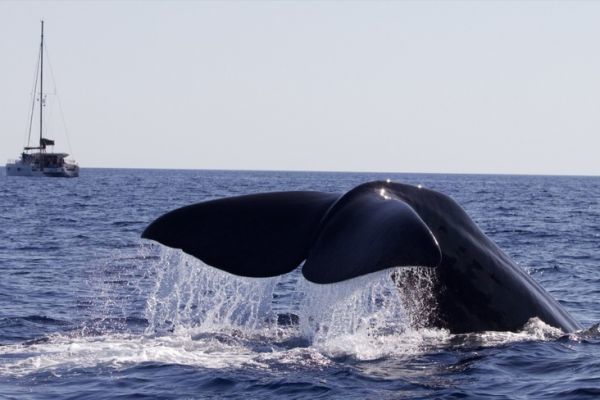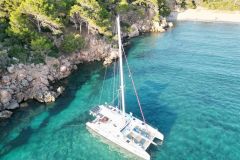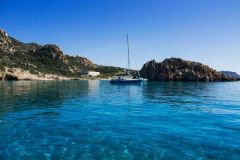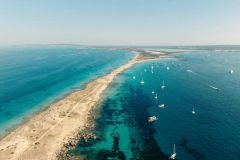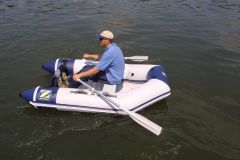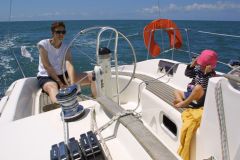Every summer in the Mediterranean, thousands of yachtsmen cross paths with dolphins and sperm whales. These encounters are a source of amazement and wonder... but they can also endanger the animals if they're treated badly. Do we really know how to observe them without disturbing them? What do we know about their needs and vulnerability? Here's how to turn these moments into respectful, unforgettable experiences.
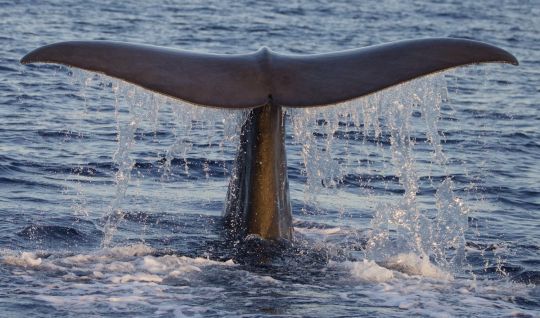
A breath on the water, a presence
They appear without warning. On the bow, on the starboard, in the wake... a breath, a shadow, a fin. A dolphin, a sperm whale, a rorqual. In the Mediterranean, encounters with cetaceans have that dazzling beauty that suspends time. An almost banal miracle, yet so fragile.
"Protecting the species is no longer enough. We need to give all living things the right to exist."
Despite the 1985 moratorium banning hunting, cetacean populations in the Mediterranean are struggling to recover. Why is this so? Because the sea has become a field of threats:
- Deafening underwater noises due to maritime traffic,
- Collisions with high-speed vessels ,
- Plastic pollution ,
- Decrease in food intake (notably certain deep-water squid, which are no longer allowed to be fished, but have become rarer),
- Disturbances in breeding areas due to increasing human traffic.
" It is estimated that there are only a few hundred sperm whales left in the Mediterranean, many of them solitary young males. They can sometimes be seen hunting together, in coordination, but they lack the quiet spaces they need to reproduce "explains Daniel.
Longitude 181: a commitment to life
This is what Longitude 181 is all about: restoring meaning, respect and awareness to our relationship with the ocean. Born from the world of scuba diving, the association defends a responsible, attentive and respectful approach to life.
" Divers are trained to observe, not to disturb, and to pay attention to the slightest gesture. No touching, no rushing. You just learn to be there. It's a school of observation "says Daniel. A school of care that Longitude 181 now wants to pass on far beyond the underwater world. ' Boating should be the ocean's first line of defense. Not just another pressure factor. "
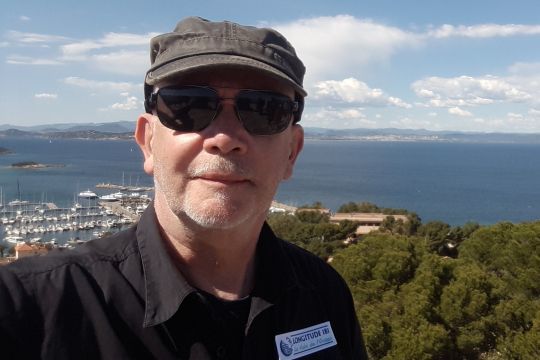
For over twenty years, the association has been committed to three complementary missions:
1. Share
Passing on the richness of the ocean âeuros its biodiversity, its wonders, its mysteries âeuros and creating a living link with the sea. Through practical guides, training courses, documentaries and educational tools, Longitude 181 makes accessible the scientific and ethical knowledge needed to better understand and respect marine ecosystems.
2. Alert
To raise awareness of the threats facing the ocean, and to challenge decision-makers in the face of destructive activities or inappropriate policies. In particular, the association campaigns for a reduction in ship speed to less than 10 knots in sensitive areas within 12 nautical miles of the coast, in order to limit the collisions and noise pollution that endanger cetaceans.
3. Act .
Moving from rhetoric to action through concrete programs: documented pleas for protection to be implemented by institutions, participatory science, support for responsible nautical practices, legal action to enforce existing regulations. A grassroots commitment to putting respect for life back at the heart of our maritime practices.
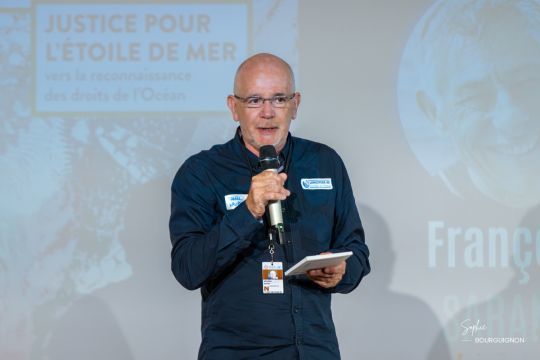
For, as Daniel reminds us: " There's no more time to wait for things to change on their own. We need to touch people's consciences, starting today. "
Observe... without disturbing
Aboard a boat, it's tempting to get closer. To get a better look. To capture "the right picture". But observing cetaceans can't be improvised. Here are a few essential points of reference shared by Longitude 181:
? To do
- Watching from afar minimum 100 metres
- Reduce speed and go into cape or slow motion
- Remaining silent to limit noise stress
- Let it come never force a meeting
" Curiosity can turn to violence. What starts out as a pleasant encounter sometimes turns into harassment. "
? Avoid
- Drive straight towards the animal
- Change course abruptly to follow it
- Surround a group or get in the way
- Getting into the water to "swim with" it
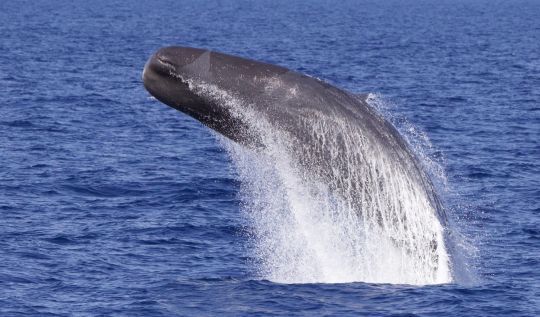
What these wonderful beings have to teach us
Why defend cetaceans in particular? Because they are symbols. Because they embody the beauty of the wild world. And above all, because they're more like us than we realize.
Daniel enthuses: " Their social structures are incredibly rich. We still have so much to learn from them. There are exchanges of clicks between individuals, deep acoustic dialogues. They are sensitive, social beings with a language, emotions and a relationship to memory. "
It evokes the tenderness of a mother with her child, " a kind of Virgin and Child "Or those suspended moments when the cetacean approaches... and then slowly leaves, as if to let us know that it is he who chooses.
For another sea
Far from being a guilt trip, Daniel Krupka's speech is an appeal. A call to responsibility, but also to wonder. " It's when we come into contact with the living that we understand what we can lose. That we realize what a wonderful world it gives us to see. "And perhaps, at the end of the day, this is the greatest gift of sailing: to relearn how to inhabit the sea. Gently. Attentively. Humbly.
To find out more :
ðµ Longitude181.org âeuros association's official website
? code of conduct for cetacean watching
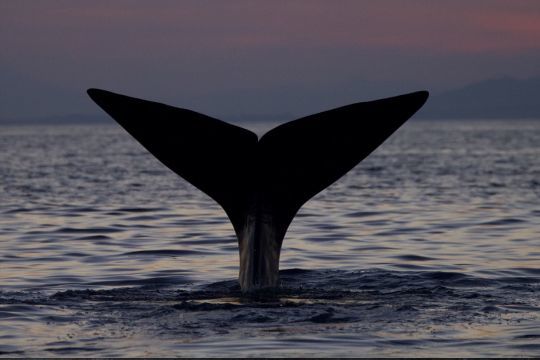
Conclusion
Meeting a cetacean is never trivial. It's a rare moment, a fragile bond, an opportunity. It's up to each and every one of us to make sure it doesn't become just another aggression. Sailing differently is also about learning to respect living things, even âeuros and especially âeuros when they move us.
"The next time you come across a breath on the water, remember: it's the breath that offers us the encounter, never the other way around."

 /
/ 